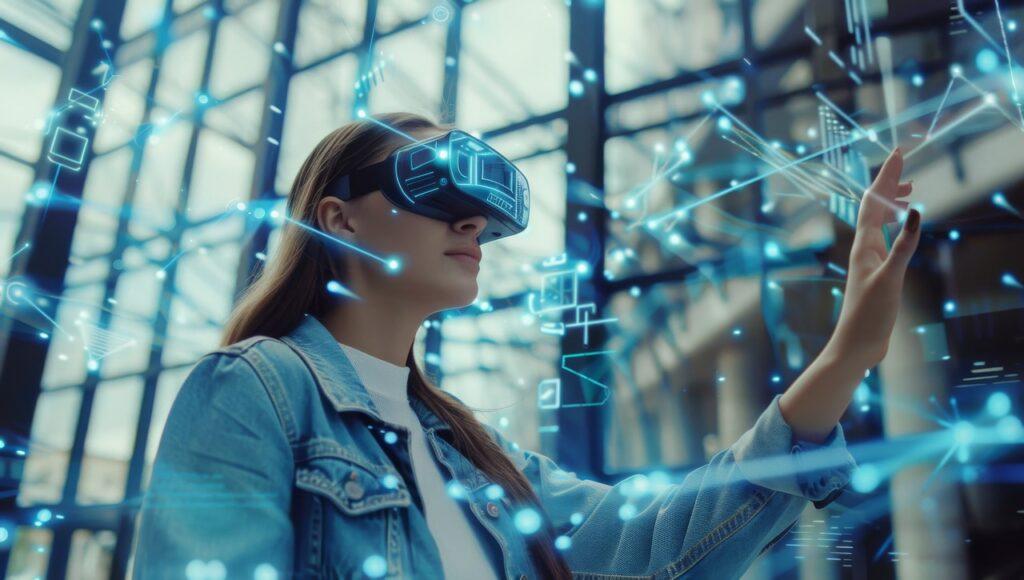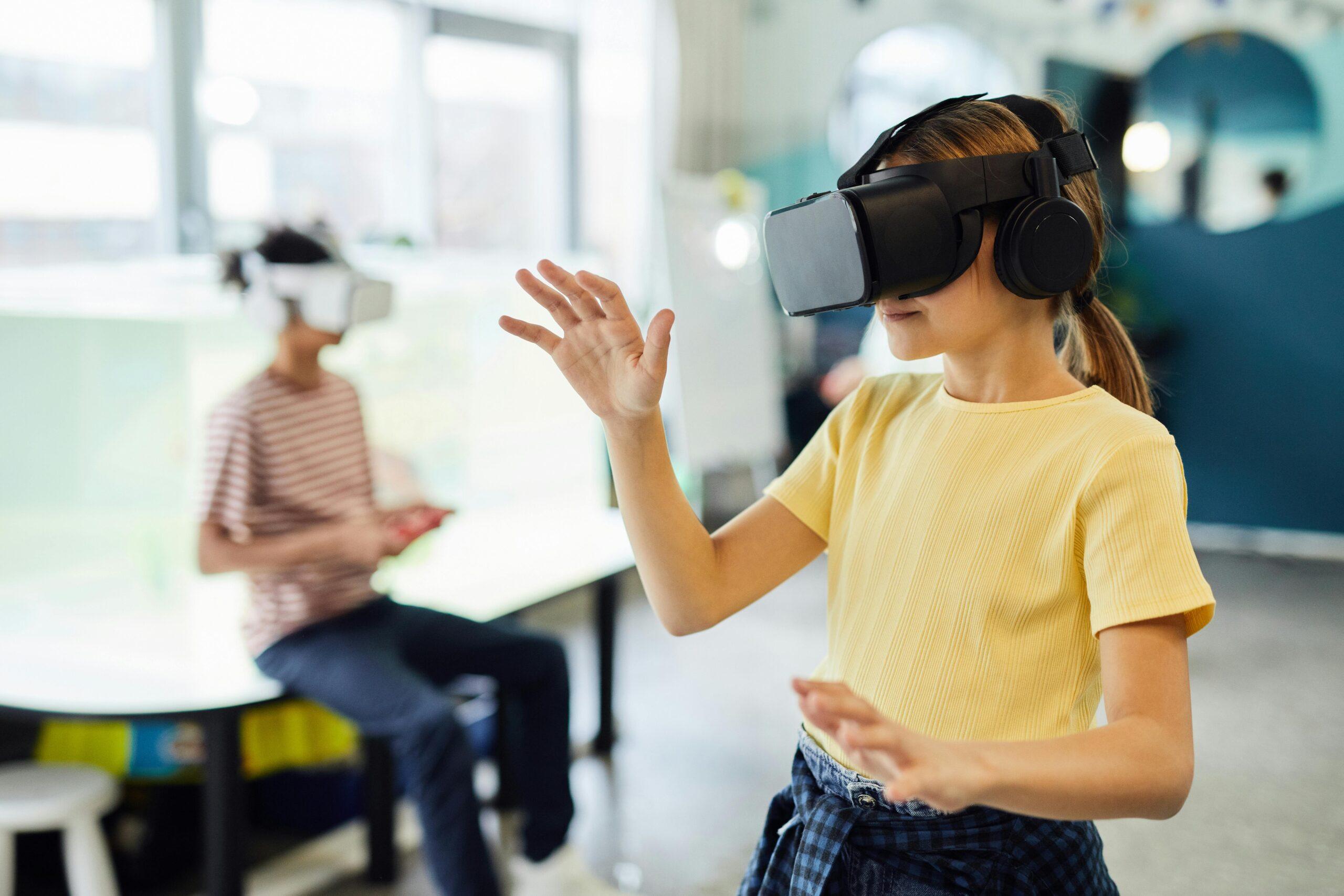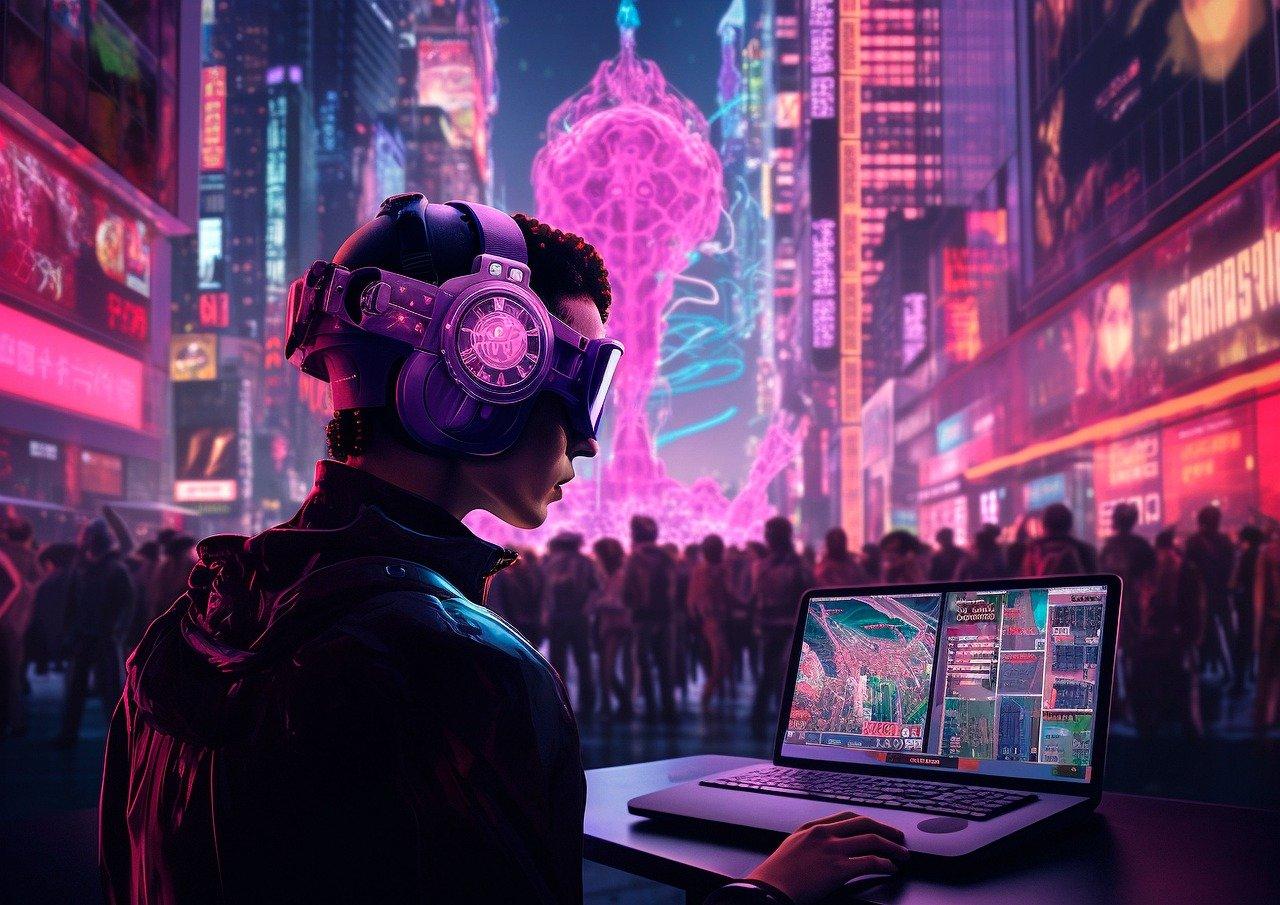
“Step Into the Future: How the Metaverse is Revolutionizing Our World!”
Imagine a world where the boundaries between the physical and digital realms blur, allowing you to interact, create, and explore in ways previously thought impossible. Welcome to the Metaverse—a concept that has rapidly evolved from science fiction into a tangible reality. In this article, we will delve into what theaverse is, its potential applications, the technologies driving it, and the challenges it faces. Whether you’re a tech enthusiast or just curious about this new digital frontier, there’s something here for everyone.
What is the Metaverse?
The Metaverse is often described as a collective virtual space that merges augmented reality (AR), virtual reality (VR), and the internet. It is a persistent, environment where users can interact with each other and digital objects in real-time.
Key Characteristics of the Metaverse
- Interactivity: Users can engage with the environment and each other, creating a dynamic experience.
- Persistence: The Metaverse continues to exist and evolve even when you log off, much like the real world.
- User-Generated Content: Individuals can create and share their own experiences, contributing to the richness of the Metaverse.
- Economy: A virtual economy exists, allowing users to buy, sell, and trade digital assets.
“The Metaverse is not just a place; it’s a new way of experiencing the internet.”

Technologies Powering the Metaverse
The Metaverse is underpinned by several key technologies that enable its functionality and user experience.
Virtual Reality (VR) and Augmented Reality (AR)
- Virtual Reality: Immersive environments that completely replace the real world, allowing users to experience a different reality through VR headsets.
- Augmented Reality: Overlays digital information onto the real world, enhancing the user’s perception of their environment through devices like smartphones and AR glasses.
Blockchain Technology
Blockchain plays a crucial role in the Metaverse by providing a decentralized framework for transactions and ownership. This technology ensures that digital assets, such as virtual real estate or NFTs (non-fungible tokens), are secure and verifiable.
Artificial Intelligence (AI)
AI enhances user experiences in the Metaverse by powering non-player characters (NPCs), personalizing content, and improving interactions. AI algorithms can analyze user behavior to create tailored experiences that keep users engaged.
Applications of the Metaverse
The potential applications of the Metaverse are vast and varied, spanning multiple industries.

Gaming
The gaming industry is one of the first to embrace the Metaverse. Games like “Fortnite” and “Roblox” have already created immersive worlds where players can socialize, compete, and create.
- Social Interaction: Players can form communities, attend virtual concerts, and participate in events.
- User-Generated Content: Gamers can design their own levels, characters, and items, fostering creativity.
Education
The Metaverse offers innovative ways to enhance learning experiences.
- Virtual Classrooms: Students can attend classes in immersive environments, making learning more engaging.
- Simulations: Real-world scenarios can be simulated for training purposes, such as medical procedures or engineering tasks.
Business and Collaboration
Businesses are beginning to explore the Metaverse for remote collaboration and virtual meetings.

- Virtual Offices: Companies can create virtual spaces for employees to meet and collaborate, regardless of their physical location.
- Training and Development: Employees can participate in interactive training sessions that mimic real-life situations.
Challenges Facing the Metaverse
While the Metaverse holds immense potential, it also faces several challenges that must be addressed.
Privacy and Security
As users engage in the Metaverse, they generate vast amounts of data. Protecting this data from breaches and ensuring user privacy is paramount.
Digital Divide
Access to the Metaverse requires technology that not everyone possesses. Bridging the digital divide is essential to ensure equitable access for all users.
Regulation and Governance
The decentralized nature of the Metaverse raises questions about governance and regulation. Establishing clear guidelines will be crucial to prevent misuse and ensure a safe environment for users.
Conclusion
The Metaverse represents a new digital frontier that promises to transform how we interact, learn, and conduct business. As we stand on the brink of this exciting evolution, it is essential to navigate the challenges it presents while embracing its potential. Whether you’re a gamer, educator, or business professional, the Metaverse offers opportunities to explore and innovate.
Are you ready to step into this new world? The future is unfolding, and the Metaverse is just the beginning.

For further reading on the Metaverse and its implications, check out this article from Forbes, which provides an in-depth look at its potential and challenges.






